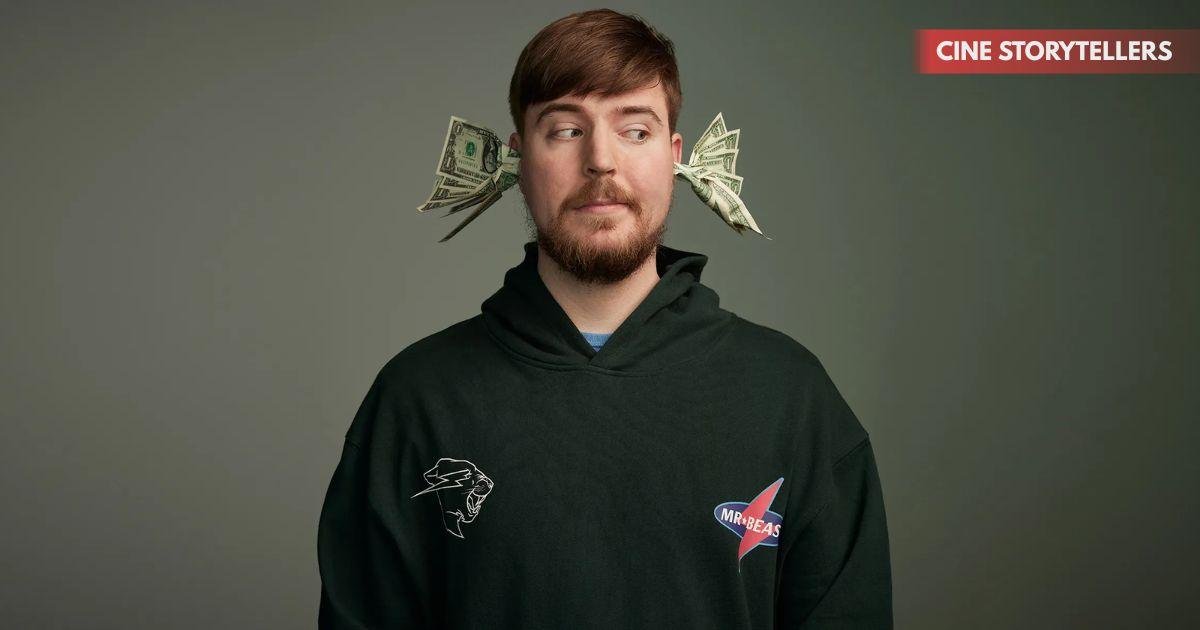Jimmy Donaldson, widely known as MrBeast, is one of the biggest YouTube creators in the world, with over 250 million subscribers and billions of views. His reputation has always been tied to philanthropy, large-scale challenges, and game-changing YouTube production. However, in 2025, MrBeast found himself in the middle of a heated debate after Rolling Stone published a controversial feature article about him. The publication, which has long been a leading name in pop culture and media, described MrBeast in a way that sparked outrage from his fans and ignited a global conversation.
This guide dives deep into what happened, the key arguments, how MrBeast responded, and why the controversy matters for creators and media today.
What Sparked the MrBeast and Rolling Stone Controversy?
The controversy began when Rolling Stone published an in-depth feature on MrBeast’s rise to fame. While the article acknowledged his success, it also highlighted criticisms related to:
- His “shock-value” content strategy.
- Claims of overworking employees in his production team.
- The ethics of turning philanthropy into entertainment.
The headline and tone of the piece implied that MrBeast was more of a brand than a person, painting him as a symbol of YouTube excess rather than a positive role model.
For fans who admire his massive donations, charity projects, and efforts to change lives, this angle felt unfair.
Why Fans Reacted Strongly Against Rolling Stone
MrBeast’s fanbase is one of the most loyal in the digital world. The Rolling Stone article created an uproar for several reasons:
- Unbalanced portrayal – Fans argued that the article ignored his positive contributions, such as funding clean water projects in Africa, paying for surgeries, and donating millions.
- Clickbait framing – Many believed Rolling Stone deliberately sensationalized the story for clicks.
- Timing of release – The article came at a time when MrBeast was making global headlines for his philanthropy, which made the criticism feel more like an attack.
Social media platforms like X (Twitter), Reddit, and YouTube were filled with hashtags like #StandWithMrBeast and #RollingStoneExposed, where fans dissected the article line by line.
MrBeast’s Response to Rolling Stone
Unlike many celebrities who stay silent, MrBeast directly responded to the article. His reply emphasized:
- He does not shy away from criticism but felt the piece lacked balance.
- His team works in an environment where passion drives the projects.
- Every large-scale production comes with challenges, but the goal is always impact.
In one post, he reminded fans that “if the videos didn’t help millions of people, they wouldn’t exist”. His statement went viral, gaining support from both creators and mainstream audiences.
The Bigger Debate: Philanthropy or Entertainment?
At the heart of the controversy lies a philosophical question:
- Is philanthropy still pure when it becomes entertainment?
MrBeast has given away millions in food, cash, houses, and life-saving aid. However, Rolling Stone suggested that broadcasting these acts turns them into content marketing, blurring the line between altruism and branding.
Supporters argue that:
- Without YouTube revenue, he wouldn’t have the resources to help.
- Even if content is monetized, the net outcome is positive because real people’s lives are improved.
Critics, however, claim that philanthropy should never be packaged as entertainment. This divide is what made the controversy such a global talking point.
Impact on MrBeast’s Career and Brand
Interestingly, the Rolling Stone controversy did not damage MrBeast’s brand. Instead, it amplified his influence. Here’s why:
- More visibility – The article pushed his name into mainstream debate.
- Community loyalty – Fans doubled down on their support, boosting his videos.
- Brand resilience – Companies and sponsors continued to collaborate with him, seeing no decline in his reputation.
In fact, YouTube metrics show that after the controversy, MrBeast’s videos saw an uptick in engagement, proving that his brand is too big to be shaken by negative press.
Lessons from the MrBeast and Rolling Stone Controversy
This incident highlights key lessons for both creators and media:
- Media narratives matter – Traditional outlets can frame a story in ways that spark massive backlash.
- Creators hold power – With direct access to fans via social media, creators can challenge mainstream media portrayals.
- Philanthropy in the digital age is complex – Audiences want both transparency and authenticity, making it a delicate balance for influencers.
Long-Term Effects on Digital Media and Creators
The MrBeast–Rolling Stone controversy may set a precedent for how legacy media covers digital creators:
- Old vs. new media – Traditional outlets often struggle to understand YouTube culture, leading to conflicts in storytelling.
- Rise of creator-driven narratives – Fans now trust creators more than legacy publications, shifting power dynamics.
- Reputation management – How creators respond to criticism shapes their brand more than the criticism itself.
For MrBeast, the controversy may have been a temporary storm, but it highlighted his dominance in the creator economy.
Also Read : Taylor Swift’s TS12 Album Rumors: Is Travis Kelce Dropping Clues?
Conclusion
The MrBeast and Rolling Stone controversy was not just about one article—it represented a clash between old media and new media, philanthropy and entertainment, perception and reality.
While Rolling Stone attempted to scrutinize MrBeast’s methods, the global reaction showed that fans largely side with the YouTuber. The debate continues to shape how we view modern-day influencers, questioning whether their massive platforms should be judged by intention, impact, or both.
In the end, MrBeast’s story proves one thing: in today’s world, creators have the power to control their own narrative—and audiences are more than willing to listen.
FAQs
Q1: What was the main issue in the MrBeast and Rolling Stone controversy?
The controversy began after Rolling Stone published a feature portraying MrBeast in a critical light, raising questions about whether his philanthropy is genuine or just content-driven.
Q2: How did MrBeast respond to Rolling Stone’s article?
MrBeast publicly addressed the piece, saying it was unbalanced and emphasized that his content is designed to make a real-world difference while entertaining audiences.
Q3: Did the controversy harm MrBeast’s reputation?
No, it actually boosted his popularity, with fans rallying behind him and engagement on his videos increasing after the article.
Q4: Why did fans accuse Rolling Stone of bias?
Fans believed Rolling Stone ignored MrBeast’s positive contributions and exaggerated criticisms for sensationalism.
Q5: What does this controversy say about the future of digital creators?
It shows that influencers like MrBeast hold more influence than traditional media outlets, with the ability to counter narratives directly through their own platforms.
Join our WhatsApp channel for more updates and information about celebrities and entertainment

I’m Atul Kumar, founder of Cine Storytellers and an entertainment creator with 5+ years of experience. I cover films, celebrities, music, and OTT content with a focus on accurate, ethical, and engaging storytelling. My goal is to bring readers trustworthy entertainment news that informs, inspires, and goes beyond gossip.
Discover more from Cine Storytellers
Subscribe to get the latest posts sent to your email.
